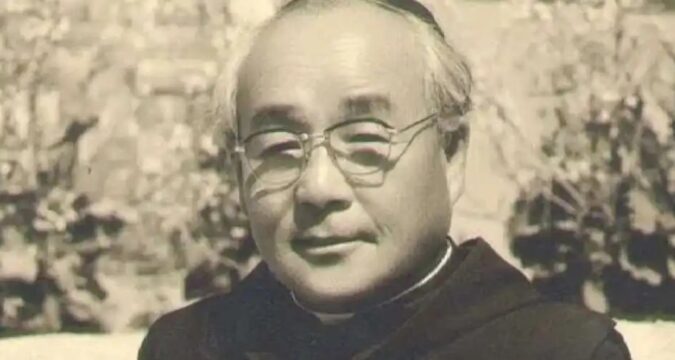
SEOUL (LiCAS News): The Archdiocese of Seoul has received the Nihil obstat [no objections] from the Holy See for the beatification process of Father Leo Bang Yu-ryong [1900–1986], remembered as an “ancestor of the faith” and the founder of Korean monastic life, rooted in the witness of the martyrs.
According to a report by the Fides, Bishop Job Koo Yoo-bi, Auxiliary Bishop of Seoul and president of the Diocesan Commission for Beatification and Canonisation, announced that the archdiocese is preparing to open the diocesan phase of the cause.
The process will collect data and testimonies to demonstrate the “heroic virtues and the reputation for holiness” of Father Bang, who will be declared a Servant of God.
Pioneer of indigenous religious life
Born on 6 March 1900, in an undivided Korea, Father Bang grew up amid waves of persecution against Christians under both the Joseon Dynasty and Japanese imperial rule.
His time at the minor seminary in Yongsan nurtured in him “a personal attraction and vision of the necessity of monastic life for the local Church.”
Ordained in 1930, he served in Chuncheon and Jangyeon parishes before becoming parish priest in Hwanghae Province.
There, he “abolished the custom of separating boys and girls in church from the age of seven, installed the first organ, and established a youth choir,” revitalising parish life.
Father Bang recognised the absence of indigenous congregations in Korea and believed that “the most effective way to spread the Catholic faith in Korea was through the Korean language and worldview.”
Founding congregations rooted in martyrdom
On 21 April 21 1946—shortly after Korea’s liberation and on the centenary of St. Andrew Kim Dae-geon’s martyrdom—he founded the Sisters of the Blessed Korean Martyrs in Kaesong.
The co-founders, Sister Yun Byeong-Hyeon and Sister Hong Eun-Sun, began religious life in “the simplest traditional Korean garments: a white jeogori and a black skirt.”
The new congregation drew its spirit directly from the Korean martyrs. Its charism was defined as: “to spread the gospel of Christ in a spirit of fraternal love and martyrdom, for the glory of God and the sanctification of each member.”
The sisters later established schools in Seoul. In 1951, the Holy See approved the Society of the Blessed Korean Martyrs, and in 1953, Father Bang founded the Male Congregation of the Blessed Korean Martyrs—the first indigenous male religious order in Korea. Additional branches followed, including a Third Order for lay members in 1957 and the Sisters of the Palm of the Korean Martyrs in 1962.
Spiritual legacy
On 6 May 1957, Father Bang professed perpetual vows in the society he had founded, fulfilling his desire for consecrated life. He devoted the rest of his life to prayer, asceticism, and spiritual guidance.
The spirituality of the society, he explained, was centred on “dedicating one’s life to Christ through meditation, silence, and transcendence in daily activities, offering oneself without reserve to others.”
Father Bang died on 24 January 1986.



